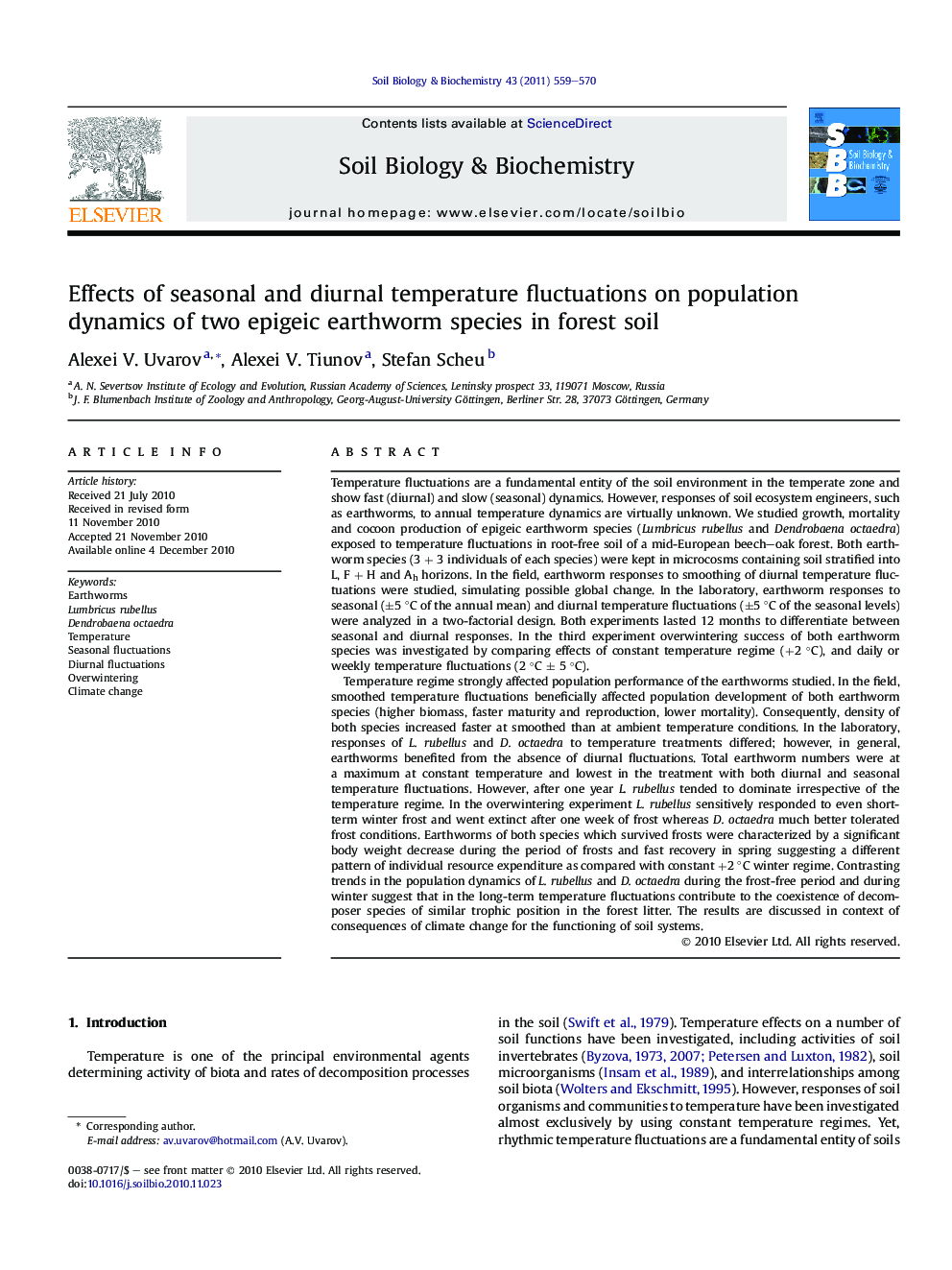| Article ID | Journal | Published Year | Pages | File Type |
|---|---|---|---|---|
| 10846000 | Soil Biology and Biochemistry | 2011 | 12 Pages |
Abstract
⺠Seasonal and diurnal temperature fluctuations affect performance of epigeic earthworms. ⺠Earthworms benefit from reduction of diurnal temperature fluctuations. ⺠L. rubellus and D. octaedra differentially respond to freeze/thaw fluctuations in winter. ⺠Long-term coexistence of epigeic earthworms is affected by temperature fluctuations.
Keywords
Related Topics
Life Sciences
Agricultural and Biological Sciences
Soil Science
Authors
Alexei V. Uvarov, Alexei V. Tiunov, Stefan Scheu,
